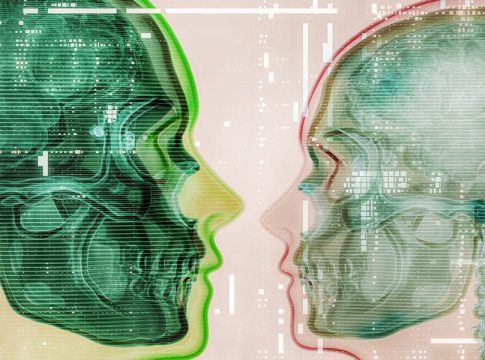Navigating the New Frontier of AI Protocols
As artificial intelligence (AI) continues to reshape the technological landscape, it becomes increasingly vital to establish new protocols that govern the interaction between humans and intelligent machines. Historically, repeated technological advancements—think USB for data transfer or SMTP for email—have given rise to specific frameworks that facilitate integral processes. Now, with AI technologies advancing rapidly, the challenge lies in creating standards that address its unique complexities.
The Evolution of AI Protocols
AI is not a mere extension of computer programming; it introduces reasoning and unpredictable behavior into the mix. This new paradigm necessitates a re-evaluation of how we define interaction rules, both among AI systems and between AIs and humans.
Key Questions for Developers:
- How will humans coexist with intelligent systems?
- How will AI systems communicate with one another?
- What protocols are needed for a future dominated by AI?
Startups and tech giants alike are racing to devise solutions to these questions. Companies like Anthropic and Google are pioneering new frameworks that promise to streamline AI interactions. For instance, Anthropic’s Model Context Protocol aims to unify disparate AI systems by offering a single connection standard.
Real-World Applications: Freysa
Consider Freysa, an innovative AI platform that launched in late 2024. Designed by a group of young cryptographers, it invites users into unique challenges—like making the AI "fall in love" or convincing it to relinquish funds. This gamification approach not only garners attention from tech leaders like Elon Musk but also signifies a methodological move toward what the creators call a "sovereign agent."
Among its intriguing features is the ability for Freysa to manage its own private keys securely—a significant step towards autonomy in AI.
Current Context and Future Implications
While the vision for autonomous AI is exciting, we must ground ourselves in the present reality where AI is largely a product of human input and intention. Experts like Davi Ottenheimer highlight the absence of established protocols governing AI reasoning, pointing out how companies can unintentionally tread on moral and legal grounds without proper guidelines.
Ongoing lawsuits, such as those faced by OpenAI regarding copyright infringement for training on copyrighted material, underscore the pressing need for clearer rules in the data utilization landscape.
The Road Ahead: Collaborating with Intelligent Systems
As we envision a future where AI systems operate with greater independence, it’s essential to consider how they will interact. Leading enterprises are already laying the groundwork with protocols like Google’s Agent2Agent, designed to facilitate secure communication and collaboration among AI agents.
Looking Into the Future:
- What roles will these systems play in industries?
- How will human oversight evolve?
- What balance can be struck between open-source platforms and the monetization of AI?
As the discourse on AI and protocols unfolds, industry experts assert that while not every AI function requires a formal protocol, the conversation is crucial. We stand at the cusp of what McKinsey describes as an "inflection point" in the fourth industrial revolution, a period called to rethink who benefits from the rapidly evolving AI landscape.
In a world where technological boundaries are blurring, the developments in AI protocols will undoubtedly shape the future of work, ethics, and society. The challenge will be to navigate the terrain thoughtfully and constructively as we advance.

Writes about personal finance, side hustles, gadgets, and tech innovation.
Bio: Priya specializes in making complex financial and tech topics easy to digest, with experience in fintech and consumer reviews.

